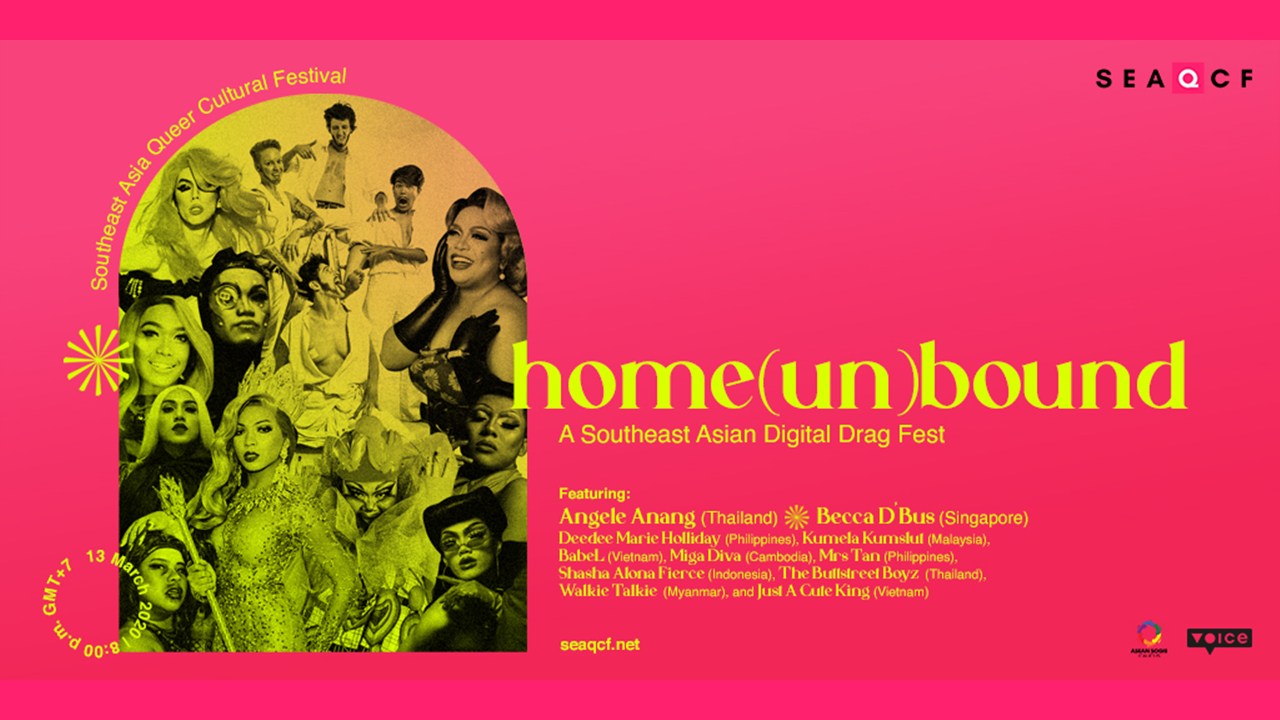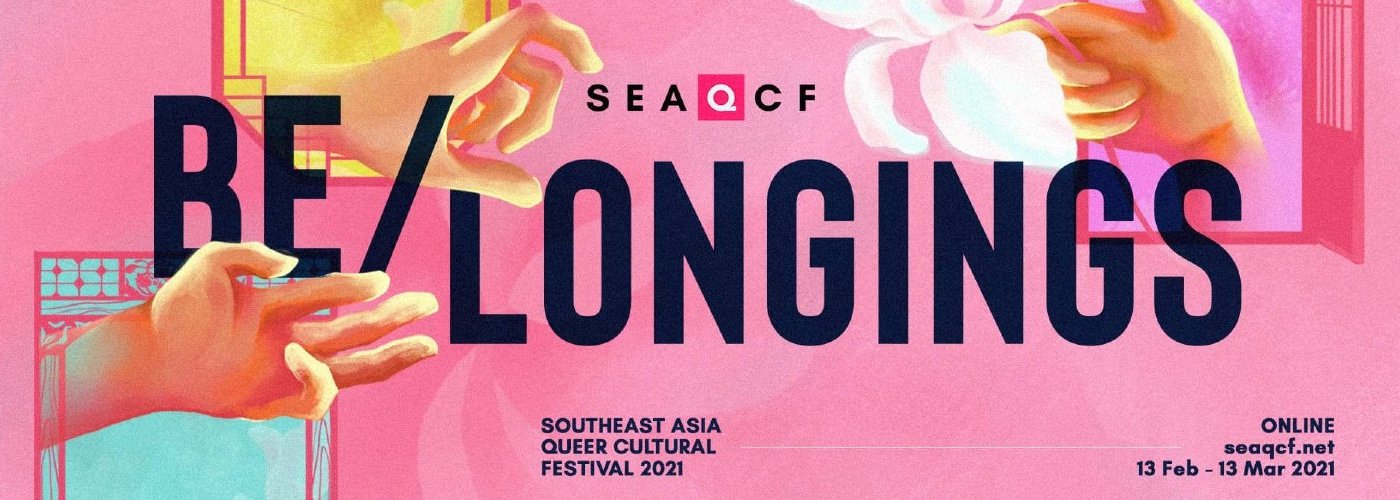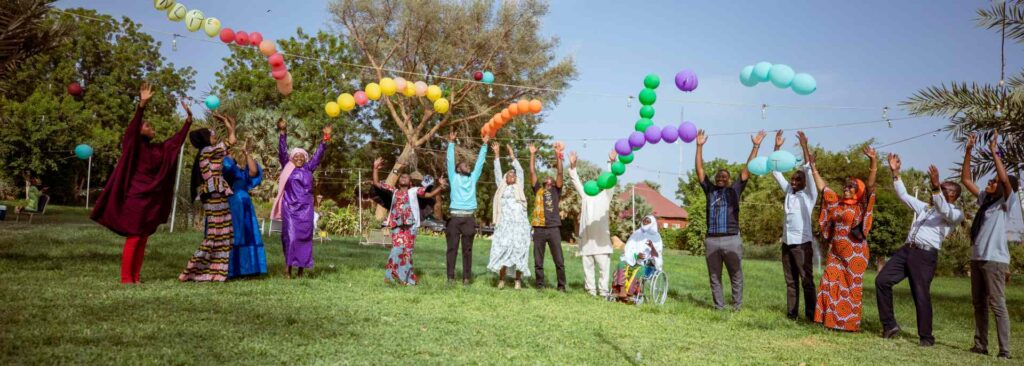The Southeast Asian Queer Cultural Festival took place at the beginning of 2021, with more than forty artists participating. Their work tells the personal stories of LGBTIQ+ people and their path to acceptance and inclusion. “We wanted to touch people’s hearts and make them better understand the LGBTIQ+ community.”
The artworks created for the festival include paintings, films, literature and poems. Such as the documentary Budjang, about a transgender woman in a Muslim village in the Philippines and her struggle to be accepted. Or the fictional scrapbook, “Days with Nina,” telling the love story of a lesbian couple from Indonesia.
The event was organized by ASEAN SOGIE Caucus (ASC), a network of regional LGBTIQ+ organizations in Southeast Asia, with support from our Voice program.
“Activism is often about advocacy,” says Ryan Silverio, ASC executive director. “But artists practice activism in a different way, they respond much more to the feeling. It was in this way, that we wanted to introduce the subject to the public and really touch them.”
Conservative norms and values
Homosexuality is not accepted in many countries in Southeast Asia, and LGBTIQ+ people face discrimination and violence. “Asians are known for their conservative and traditional values, which are not always in line with human rights,” Silverio notes. “Many see homosexuality as something that has come over from the West and doesn’t fit into Asian culture.”
ASC wants to counter this conservative mindset and is committed to garnering integration and acceptance for sexual and gender diversity. Silverio is pleased to see that more communities are willing to adopt norms and values that recognize diversity. “We want to bring these kinds of stories out and thus sway public opinion. If more and more people support us, it also helps to influence governments and other influential bodies. The South East Asian Queer Cultural Festival is one of the ways we have to tell these stories.”
From 15 to 40 artists
ASC was supposed to tour Southeast Asia with the festival, but the Covid-19 outbreak turned it into an online festival. But Silverio did not despair. “The advantage of this was that we had money left over to involve many more artists, no fewer than forty instead of fifteen!” he laughs. Adding, “We also organized the Southeast Asian Drag Festival to show the role of drag as protest art and then showed the video during the finale of our Queer Cultural Festival.”

Good example with a long reach
Silverio is happy to see that the festival has inspired others. “Other human rights organizations are now also holding online festivals and asking us for advice. That is of course a great compliment and a sign that we have not gone unnoticed.” The festival’s reach is also a reason for Silverio to be proud. “Figures show that the website was visited about 20,000 times during the festival and the works and events were viewed thousands of times through our social media channels. We think that is a very nice result!”
Curious about the works of these artists? Check out www.seaqcf.net
About Voice
Voice is an innovative grant facility executed by a consortium between Oxfam Novib and Hivos. It supports rights holders and groups facing marginalization or discrimination in their efforts to express their views and demand their right to responsive and inclusive societies. Specifically: people with disability; LGBTI+ people; women facing exploitation, abuse or violence; vulnerable elderly and the youth; Indigenous people, and ethnic minorities.






